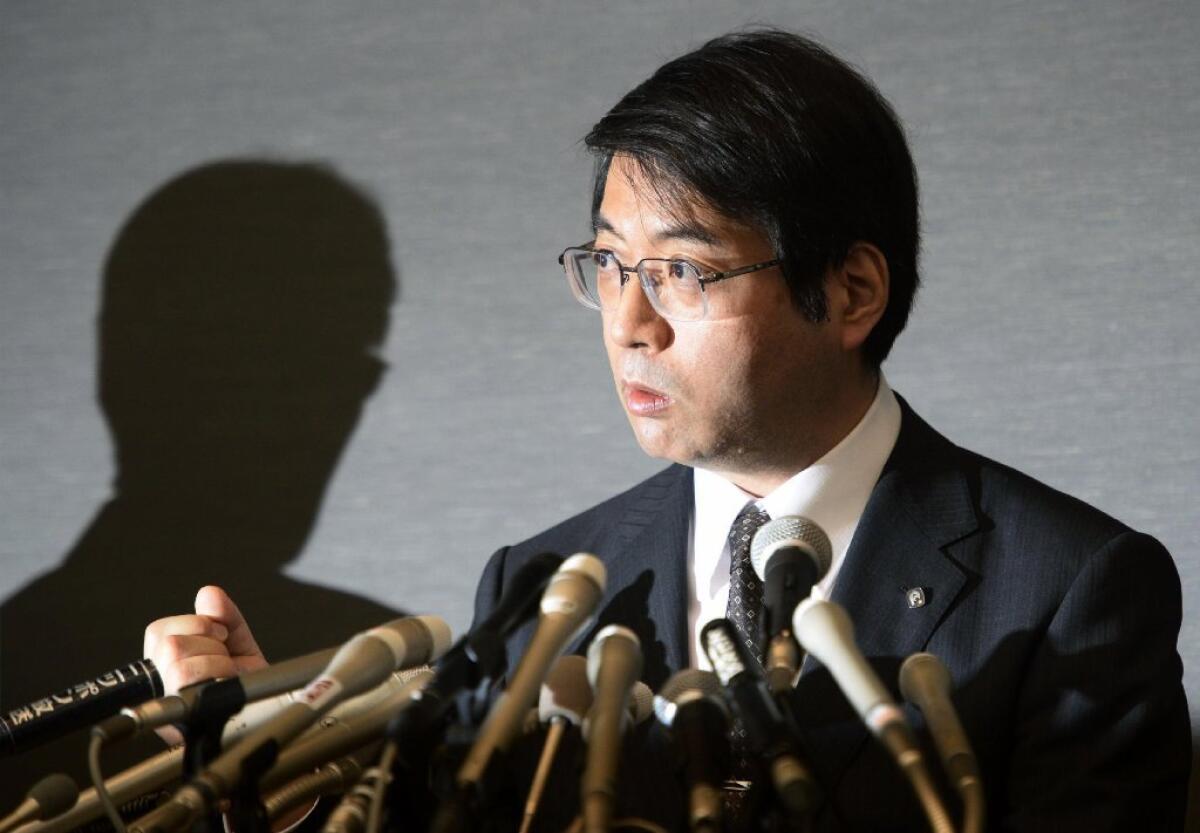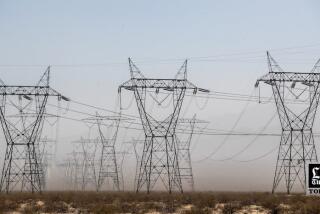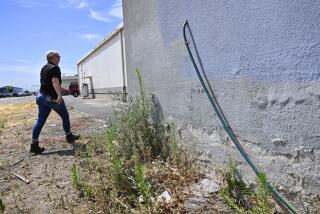STAP stem cell controversy ends in suicide for Japanese scientist

A Japanese scientist who played an instrumental role in two discredited studies about a new type of stem cells hanged himself at his research institute in Kobe, according to media reports there.
Yoshiki Sasai, a deputy director of the RIKEN Center for Developmental Biology, left behind five apparent suicide notes, Japan Times reported Tuesday.
“I am overcome with grief at this terrible news,” RIKEN President Ryoji Noyori said in a statement released Tuesday. “The scientific world has lost a talented and dedicated researcher, who earned our deep respect for the advanced research he carried out over many years. I would like to express my deepest condolences to Dr. Sasai’s family and colleagues.”
Sasai was a coauthor on two papers published in Nature that purported to offer a quick and simple way of making highly versatile stem cells. Instead of destroying embryos or tinkering with their DNA, the scientists said they produced their flexible cells by stressing them out in an acid bath for 30 minutes and then spinning them in a centrifuge for 5 minutes.
At first, scientists hailed the creation of the so-called stimulus-triggered acquisition of pluripotency, or STAP, stem cells. But within days, serious questions arose about the researchers’ methods, leading to a RIKEN investigation that found several instances of scientific misconduct on that part of study leader Haruko Obokata, a rising scientist at RIKEN.
Both studies were retracted in July.
Sasai was Obokata’s supervisor and was supposed to oversee her writing, Japan Times reported. RIKEN faulted Sasai for failing to check the data used in the study and for providing weak oversight that allowed Obokata to submit a manuscript with manipulated images and other serious problems.
“Research misconduct occurred due to a young researcher’s lack of experience and awareness of the importance of research ethics, the lack of leadership among researchers to help her, and a lack of mutual verification among groups,” Noyori said when RIKEN announced the results of its investigation in April.
Sasai appeared to take these criticisms to heart. He offered a very contrite statement when the studies were retracted.
“As a researcher, I am deeply ashamed of the fact that two papers of which I was an author were found to contain multiple errors and, as a result, had to be retracted,” he wrote. “I also deeply regret the fact that as a coauthor, I was not able to identify these errors beforehand and to exercise my leadership to prevent this regrettable situation, including misconduct, from occurring. I apologize wholeheartedly for the confusion and disappointment that this situation has caused.”
He added: “As a deputy director of our center, with responsibility for nurturing young researchers, I feel a deep responsibility for what has happened, and plan to comply with whatever decision RIKEN finally reaches regarding my own status.”
Sasai earned a medical degree from Kyoto University Medical School in 1986 and got a doctorate there in 1993. He spent three years as a research fellow at the UCLA School of Medicine and joined RIKEN in 2000. Sasai headed a research group studying neurogenesis and organogenesis before becoming a deputy director of the center in Kobe.
He was found hanging from the handrail of a RIKEN stairway, Japan Times reported.
“I was deeply saddened to hear of Dr. Sasai’s passing,” Masatoshi Takeichi, director of the RIKEN Center for Developmental Biology, said in a statement released Tuesday. “As a manager, and also as a scientist, I have lost a most valuable colleague. I would like to express my heartfelt condolences to Dr. Sasai’s family and friends.”
Obokata, the chief proponent of STAP stem cells, has disputed some of the criticism from RIKEN, the largest scientific research institute in Japan. She insists she created STAP stem cells “more than 200 times” and is still trying to prove that the cells are real.
A RIKEN spokesman said three apparent suicide notes were found near Sasai’s body and two others on the desk of his secretary, according to the Japan Times. One of the notes was addressed to Obokata, according to an unnamed source.
“Be sure to reproduce STAP cells,” the note read.
Paul Knoepfler, a stem cell researcher at UC Davis who was among the first to raise questions about the STAP stem cell papers, remembered Sasai Tuesday as “a top scholar in the stem cell field” who was “widely respected.”
“The Sasai Lab has focused on many important stem cell and developmental biology projects,” Knoepfler wrote on his blog.
One person responded to Knoepfler’s post by writing: “Neither Dr. Obokata’s stubborn refusal to take responsibility for this debacle nor Dr. Sasai’s taking ultimate responsibility through suicide are healthy ways of clearing things up.
“We should learn what went wrong and why so we can do better next time,” the person wrote, using the handle “Gaikokujinnoiken.” “I’m sure there will be some embarrassment and shame when the truth gets out, but nothing that warrants taking one’s own life! We’re all human beings, after all, and we make mistakes.”
For more news about scientific and medical research, follow me on Twitter @LATkarenkaplan and “like” Los Angeles Times Science & Health on Facebook.







